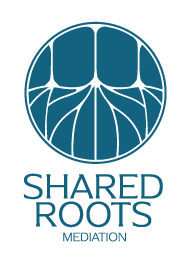Survivor Engagement & Support:
All of our services at Shared Roots begin with survivor support and engagement, centering the persons who have experienced sexual harm in our trauma-informed care. Starting with an initial intake and ongoing consultations, survivors can share their story on their own terms and be heard in a non-judgmental space, during which we will assist them in identifying their needs and determining what accountability and healing would look like for them. With the survivor as the priority, our trained staff work with the survivor to shape a path forward that amplifies their voice and centers their healing. As a result of this initial engagement and support, a survivor may choose to engage in further services with Shared Roots, to receive a referral to another survivor agency, or to end their work with Shared Roots at any time. Our goal is to empower survivors to determine the best healing journey for them.
Restorative Justice
At Shared Roots, we use the term restorative justice to encompass both a philosophy and a social justice movement, rooted in indigenous practices and focused on how we, as a society, should address harm and wrongdoing without involving the traditional legal system. Restorative justice processes, as practiced by Shared Roots Mediation L3C, center the harmed person and their needs and healing. The restorative journey, therefore, will be tailored to the specific persons and circumstances involved in each conflict, and we will employ any restorative justice processes needed to move towards the goal of creating true justice, healing, and accountability. This work may lead to an eventual facilitated dialogue between persons who have been harmed, the person who caused that harm, and their community, if all parties agree and after appropriate pre-conferencing is completed. Other processes could include community or healing circles, as well as vicarious dialogue options.
Mediation
Mediation, as practiced by Shared Roots, refers to a specific dispute resolution tool most appropriate for conflicts between a person who was harmed and an entity with responsibility over the person who did the harm, such as a business or a school. At a Shared Roots mediation, our trained facilitator will assist the parties through a negotiation to reach a mutually agreeable resolution. By asking questions, validating positions, and encouraging openness and honesty, the mediator will seek to identify the interests and needs of each party and find common ground that may offer options for a resolution. Unlike traditional mediation, however, we seek to employ principles of restorative justice within this facilitative model, specifically encouraging the parties to look beyond the particular conflict to determine how any resolution can create space for change in the broader community involved.


